Belief systems and religion in the fantasy genre feature a great deal, and it’s unsurprising why.
Religion, faiths and beliefs shape our lives in a multitude of ways, providing purpose, meaning and structure. That’s not to say everyone’s lives, but a good number.
As writers, it’s therefore important that when it comes to writing fictional religions that we know the best approaches and methods.
Below, we’ll look at:
- Religion in fantasy novels
- How religion can shape fantasy worlds
- We’ll look at how religion can affect characters
- And how to create a fantasy religion
- Fantasy religion questions you can ask yourself
- Worldbuilding and religion
- Lastly, we’ll consider the opinions of fantasy readers.
Before we march on, I wish to make it clear that this is just an examination of religion within the fantasy genre. Everybody is free to hold their own beliefs and the last thing I wish is to cause any offence.
If you’re interested, I was raised a Roman Catholic, went to church every week until the age of fifteen, even served as an altar boy. I’m a non-believer now, but that doesn’t mean I look at religion with scorn like so many do.
My aim here is to be as objective and helpful as possible.
Defining religion
Religion can be construed in different ways; it doesn’t help there are three different definitions:
- The belief and worship of an ‘all-powerful’ figure, such as a god or goddess (monotheism). There can be more than one central figure too (polytheism).
- A system of faith and worship.
- A pursuit or interest followed with devotion.
When we think of our own religions, one thing which features heavily is faith.
It’s faith in a belief or religion that makes it real in minds and hearts.
What gives us faith? Teachings which we agree with, answers to questions, miracles, religious texts, or prayers, songs, masses and sermons which imbue us with purpose.
Fantasy and Religion: Shaping Worlds
Let’s begin by looking at our own world. We’ve seen the Crusades, and more recently, the rise and fall of the Islamic State.
Religion has been used as the justification for these conquests, which saw hundreds of thousands die and more displaced. Borders changed, cities levelled and new ones built, groups of people snuffed from history.
I’m straying more into the implications of conquest generally here, but it shows the influential reach a belief can have.

Religion in FantasyOn a less violent level, how can religion shape societies? Canon law and the beliefs of the church in Medieval England dictated the lives of many, women in particular.
For instance, canon law defined a woman as ‘a sort of infant’ and gave husbands permission to beat their wives if they thought them lazy or disobedient. Click here to read my post about the lives of women in the Middle Ages.
All of these things apply to your fantasy worlds too. We can begin exploring these ideas by asking ourselves some fantasy religion questions:
- How has time before your story shaped your world?
- What role, if any, did religion play?
- Things like weddings, funerals, baptisms are all religious customs. How does your religion impact these aspects of your character’s lives?
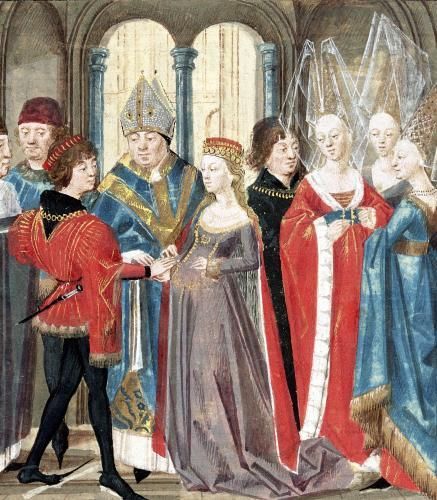
- What’s the relationship between magic and religion?
- How do different characters view religion and how does magic influence religion?
- Are they separate or interlinked?
- Do they conflict with each other?
A pretty common feature of fantasy religions is that they tend to be true. Gods and goddesses do exist, manifesting themselves in different ways, such as forces or energies or demi-gods, as well as ancient prophecies which come true.
If a fantasy religion is true, what role does faith play?
But they could also be non-existent. It’s the discussions of gods and goddesses which help create what they are. Look at Bram Stoker’s Dracula. Dracula hardly features in the story, yet we learn much about him.
In keeping the distance between humanity and gods and goddesses you help to create that mysterious, all-powerful air.
How Can A Fantasy Religion Affect Characters
Next up in our guide to creating a fantasy religion is an examination of the effect faith has on our characters.
Characters who hold conflicting beliefs are a great way to explore religions in a fantasy world.
You have your fundamentalists, for example, sceptics, atheists, and people who believe some parts but not all. Some of these groups actively oppose each other, such as zealots and atheists.
Just as we have the believers, we also have the manipulators. People who take advantage of religion and people’s need to find purpose, answers, structure, warping their minds for their own gain.
Looking into real-world cults is a great way to get to the heart of this. It’s important to keep in mind that an antagonist inspired by what we would deem an evil religion must believe wholeheartedly that they are right and justified in their actions; they must think they’re the good guy. It’s what god wants after all.
It’s important to be mindful of how you portray religion in fantasy novels and religious characters. Quite a common occurrence is the religious ‘knuckleheads’.
Brandon Sanderson On Religion
Brandon Sanderson discusses this in the video below with reference to writer Dan Brown. Sanderson argues that Brown views religious characters as fools who should be proven wrong. Sanderson recommends avoiding this trope when writing fictional religions. It’s reductionist and offensive.
You can watch this video by Brandon Sanderson on religion below.
Another aspect of religion that creates conflict is contradictions.
People interpret religious texts in different ways. Christianity, for instance, has numerous branches; the Westboro Baptist Church is just one example.
It’s important to remember that as a fantasy writer if you introduce contradictions, you’re creating conflict which in turn creates a plot point. Readers expect something to develop out of it, so if you go to the trouble, be sure it’s going somewhere.
Religion can provide context for a character’s actions too. They can take messages from forces above that shape how they live. How does religion help characters interpret your world? This is a point we’ll come to in more detail below.
Think about the religious roles your characters could play? Are there shamans, priests or priestesses, a Pope-like figure?
Just look at how influential the High Sparrow became in Game of Thrones. For me, this is an example of a great fantasy religion.
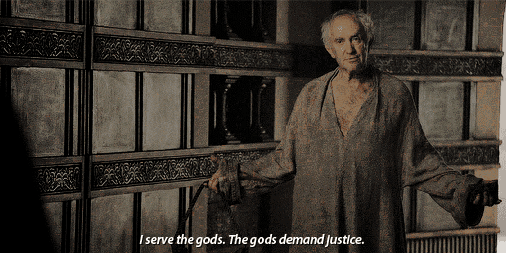
Playing Creator
If you’re creating a fantasy religion in detail it needs to form part of your fantasy worldbuilding process. The swell folks over at Fantasy Faction published an excellent article on this very topic, and it suggested a few questions to ask yourself when thinking about your own religion:
“1) Where did we come from? Your religion should have some explanation for how the world came to be.
2) What happens when we die? You have to answer questions about the afterlife with your new religion.
3) How should we act while we’re here? Your religion should provide some kind of moral code.”
These are just a handful of key fantasy religion questions to ask yourself.
Writer Orson Scott Card provides a great list too which you can read by clicking here.
What I’d add to this list of worldbuilding questions above is: what do we regard as important in life?
When a lot of religions and beliefs were first formed, the things which people revered most in their lives were in the skies, i.e. the sun and stars.
The sun, in particular, was seen as the giver of life, the banisher of darkness.
It can be argued that the heart of every religion boils down to the struggle between good and evil, light and darkness, and the essence of that battle stems from day and night, how the sun falls each day, giving way to evil darkness, only then to rise again and save humanity.
Astronomy played a significant role in people’s lives too. It was used for navigation, gauging the passage of time, and as a guide for when to plant crops.
Remember, for your fantasy religions to spread and catch on, you need to think about logistics. The rise of Catholicism, for example, was partly down to preachers prepared to travel countless miles.

My Great Uncle Paddy was a Catholic missionary in Sierra Leone who tried to establish a church there. Every time he built one it was torn down by other religious groups. Again, another example of conflict.
Religion In Fantasy Novels
Religion features heavily in the fantasy genre and can be found in many novels. Perhaps the most famous and recent example can be seen in George RR Martin’s A Song of Ice and Fire/Game of Thrones series. In that features a prominent religion called the Faith of the Seven, along with other belief systems like the followers of the Lord of Light. It serves as a great example of how characters can be shaped by their beliefs.
Free Tool – Random Fantasy Name Generator
The Opinions Of Readers On Writing Fictional Religions
I found an insightful thread on r/fantasy to do with writing fictional religions. There was a wide range of opinions, some of which I thought would be quite helpful. Here are just a few. You read the full thread by clicking here.
rake_the_great: I’m not against people who are religious being evil – it definitely happens in the real world – but it bugs me when the author uses it because they don’t have the motivation to come up with something interesting on their own. It was annoying when Dan Brown and Assassin’s Creed did it, and so when this formula comes up again, it feels degrading to something that’s very important to me personally.
Petros-Tr – Fantasy books with Gods that actually make an appearance (not just mentioned) are my favourite. Powder Mage, Lightbringer, The Chronicle of the Exile etc.
Theloftytransient – If an author doesn’t think about religion intelligently or has studied it from an anthropology perspective, it’s pretty obvious and painful. Hate the “Christianity applies to everything even fantasy” trope. I also don’t like the “all religions are cults or evil” and “atheists are the wisest” trope.
Archprimus – I don’t like being overwhelmed with religion in books in all honesty. When I was reading Mistborn I remember Sazed used to take a few pages to inform Vin of different religions in the past. And I liked it too, learning about it because it was fun.
Enasor – While I do not usually mind the inclusion of religion within works of fantasy, I would like to see more books where it isn’t such a prominent theme.
Schmii – I love religion in fantasy especially if an author can create a religion that feels rather complex. I just think religion is so interesting because it can bring people together and tear people apart.
What are your views on religion in fantasy? Have you come across an example of great fantasy religions, or any other fictional religions for that matter?
Comment below!
Extra Resources On Religion In Fantasy
Below, you can find some links and guides to everything from monotheistic fantasy religions and fantasy religion questions, to more information on how to create a fantasy religion and worldbuilding and religion considerations.
An interview on religion in fantasy with Orson Scott Card
Check out Tor’s guide to positive examples of religion in fantasy
A study on religion in fiction with a focus on Harry Potter and His Dark Materials
Here’s a great guide on religion in fantasy novels by Susan Leigh Noble
If you’d like to learn more about book marketing, check out my guide on Story Origin.
Here’s an interesting guide on the life of a lord during the medieval period, which may give you some ideas for your religions.
Head here to learn more about archery and the fantasy arrow.
To discover more about the castle in fantasy fiction, go here
Head here to learn more about worldbuilding and religion.
Describing the process of worship and rituals can be tricky. One thing you can do is utilise the five senses. Explaining how the incense smells, for instance, or the drip of blood hitting the floor immerse your readers and draw them deeper into the tale. To check out an example of a descriptive paragraph using the five senses featuring this kind of thing, head here.
Thank you so much for stopping by and checking out this fantasy religion guide. I hope you’ve found it useful! Please share it with your writing friends and if you enjoyed it or have a comment, please share your thoughts below!
- 5 Tips to Help Your Child Learn and Succeed at Primary School - February 26, 2024
- The Advantages Of Using An AI Essay Typer Alternative - February 14, 2024
- Advice On Getting Help With Your Homework - January 26, 2024
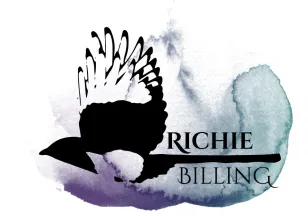


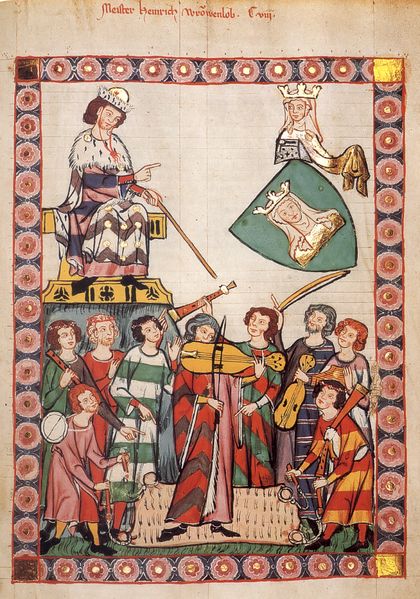
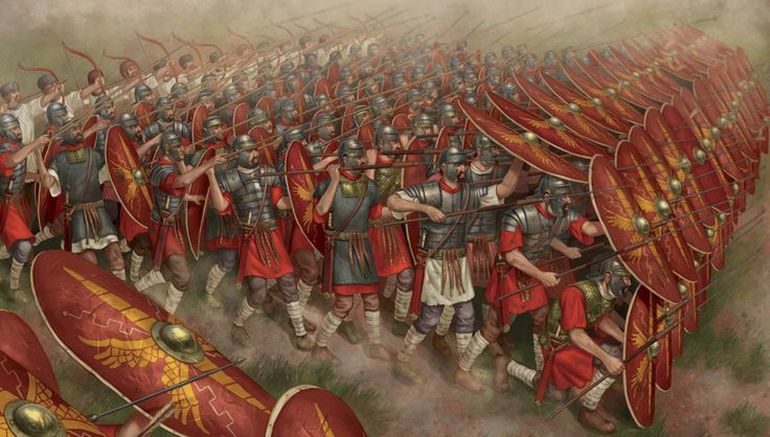
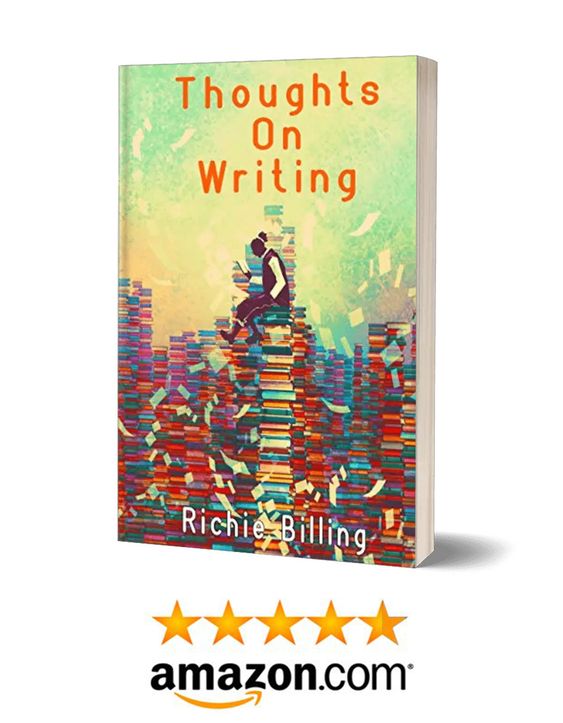
Nice article.
My story utilizes an omnipresent substance called Ether, which is also the basis for the religion. Magic and spiritualism often interconnect, as you said.
There’s a lot of stigmas and opinions out there because people view religion so personally, even if they aren’t religious. Cheers.
Thank you! I’m glad you found it useful. There are a lot of stigmas which people need to see past. That’s why I began with the definition of religion. It’s so broad but people so it narrowly
Reblogged this on Ethereal Seals and commented:
What is religion in fiction, and how do we incorporate it into writing? Here’s an informative post from a fellow blogger. Cheers. 🙂
Thank you for sharing!
Excellent overview and considerations, Richie. Great post for fantasy writers.
You, sir, seem to have a very circumspect view of religion in fiction. And, as someone who considers himself a believer, I respect that. I think one of the most important aspects of depicting religion, as you pointed out, is to eschew tropes in favor of a more realistic spectrum of views regarding faith, to show the virtues and vices of each spiritual position. I plan to employ this method of handling religion in my own works, going forward.
Thank you. I appreciate that. A good deal of fiction seems to miss the point when it comes to religion. Faith plays a huge part, yet all too often it’s completely forgotten about. It’s always good to be aware of overused tropes, and until I’d delved into this topic I wasn’t aware of them all. Thank you for reading!
Yes – adding religion to a fantasy world makes it richer.
Religion can be such a tricky thing. On the one hand, many stories are not interested in religion as one of their central topics, but the author still has to ensure that religions, and their advocates, do not come off as simple “good” or “bad”. I definitely find I prefer polytheism in my fiction, mostly just because our world is so dominated by monotheistic religions, and I find it refreshing. Of course I also read fantasy and scifi in general because it’s refreshingly different from the world I live in.
Definitely a solid post and good starting point to discuss and develop religion within a story.
I think one thing I’ve seen, and enjoyed, are stories where a main character has a personal falling out with religion, often because the world is cruel and yet they are still expected to honor the god(s), but then, in some fashion, it’s revealed that the gods themselves also struggle with guilt, frustration, and sadness, over the state of the world, and the way in which their true message or goals have been distorted by humans, both well-meaning and self-serving. There’s something heartening to me about a divine being that’s willing to admit to that.
As a writer primarily in the field of epic Christian fantasy, obviously, religion plays a major role in my storylines. The entire premise of my premiere series, “Truthbearer: The Journeys of Connor Clark” is that in the near future Christianity will be criminalized, and those who oppose it, persecuted and executed. After escaping execution, Connor is drawn into another world of mortal and immortal elves, and a battle with three dark beings, one of whom is drawn from Scripture. He is given the task to “take the truth (the rise of evil and the suppression of the Deep Magic) to the Nine Worlds. As the stories progress, Connor and his new Elven wife, Iolena, find allies in those who believe in a version of the Holy Trinity, In Gewellyn and the Aerielands, it is Creator and the Great Lion. Across the vast world of Eldaria, Lordabove and the White Eagle. Other worlds are pantheistic, such as Bolandria and Hevanok. When their youngest daughter, Fiona, is restored to Connor and Iolena, she has been raised in 5th century Ireland by Mother Bridget of Kildare and is a devout Christian follower of the faith of Colum Cille.(St. Columba of Iona). Pre-Roman Celtic Christianity (my own faith) plays a major part in my second series, “The Adventures of Fiona Clark.” Through it all, their guide and counselor is the cleric Padraigh, who is gradually revealed to be St. Patrick of Armagh. My stories wouldn’t exist without “religion” and it says a lot that my proofreader, my wife, is a Lutheran pastor, Bible scholar and teacher, and my editor is also a seminary graduate, one of my wife’s classmates.
Thank you for sharing with us such an intriguing post. If a writer is very resourceful and clever, religion can be a fascinaring topic to explore not only in fantasy but in other genres as well. I believe it’s very easy for any writer to slide into an us vs them mentality which, apart from being simplistic, perpetuates common negative stereotypes and creates a false polarity that doesn’t correspond with reality.
I always admire any writer who doesn’t shy away from presenting both the good and the bad of any religion but instead focuses on the gray areas and the complexity of the matter without spoonfeeding the reader but letting him/her form his/her own conclusions.
Pingback: About This Writing Stuff | Phil Giunta – Space Cadet in the Middle of Eternity
Thank you for sharing!
Pingback: The Races of Fantasy: Re-Use, Recycle or Rubbish? - Richie Billing
Pingback: Why Christians Should Read Fiction Books – Tagari.com
Pingback: Religion and Belief Systems in Worldbuilding - Bethany Henry